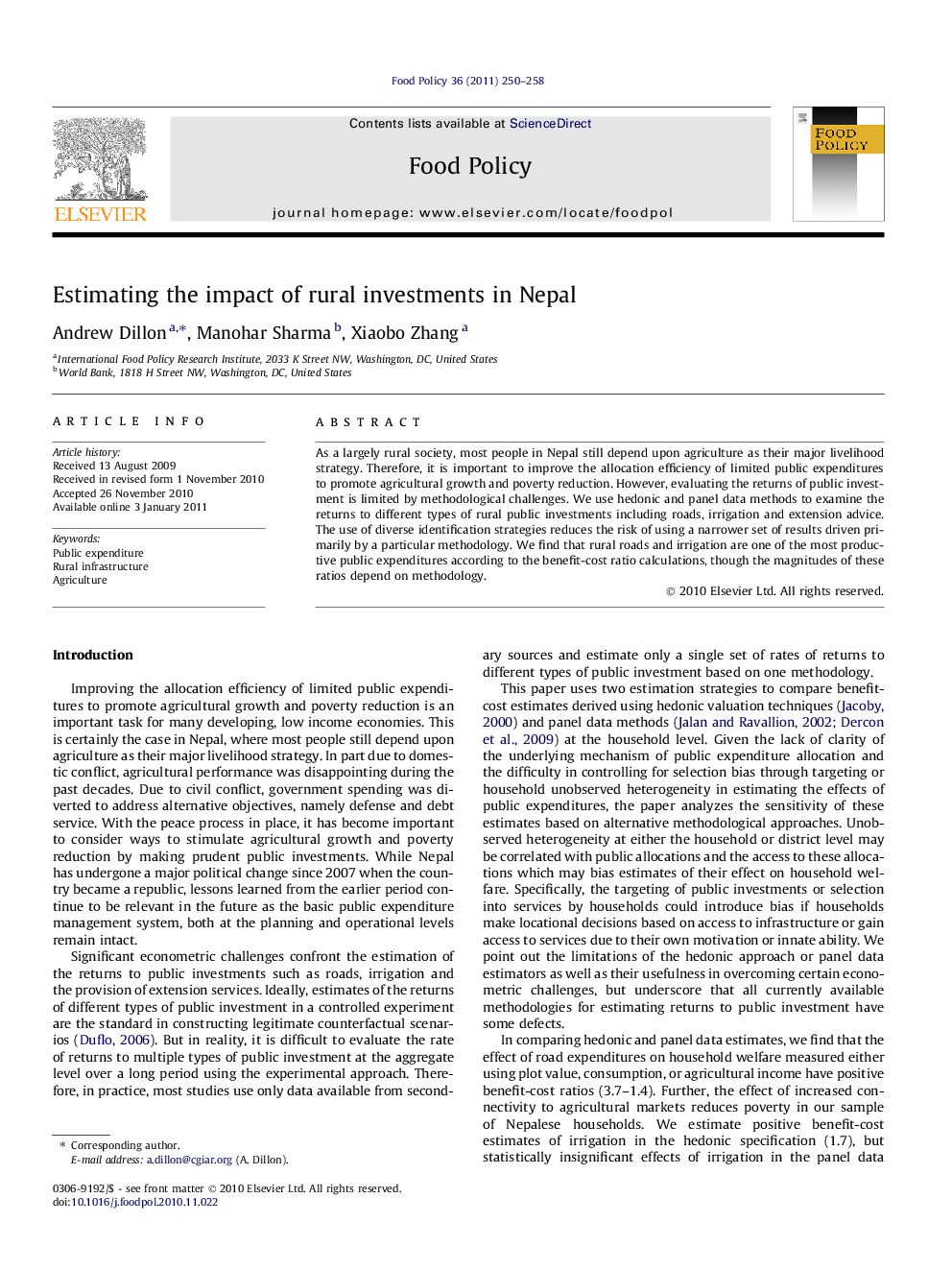| Article ID | Journal | Published Year | Pages | File Type |
|---|---|---|---|---|
| 5070734 | Food Policy | 2011 | 9 Pages |
As a largely rural society, most people in Nepal still depend upon agriculture as their major livelihood strategy. Therefore, it is important to improve the allocation efficiency of limited public expenditures to promote agricultural growth and poverty reduction. However, evaluating the returns of public investment is limited by methodological challenges. We use hedonic and panel data methods to examine the returns to different types of rural public investments including roads, irrigation and extension advice. The use of diverse identification strategies reduces the risk of using a narrower set of results driven primarily by a particular methodology. We find that rural roads and irrigation are one of the most productive public expenditures according to the benefit-cost ratio calculations, though the magnitudes of these ratios depend on methodology.
Research highlights⺠Evaluating the impact of public investment is limited by methodological challenges. ⺠We use hedonic and panel data methods to examine the impact of different types of rural public investments including roads, irrigation systems and extension advice. ⺠We find that rural roads and irrigation systems are one of the most productive public expenditures according to the benefit-cost ratio calculations, though the magnitudes of these ratios depend on methodology.
